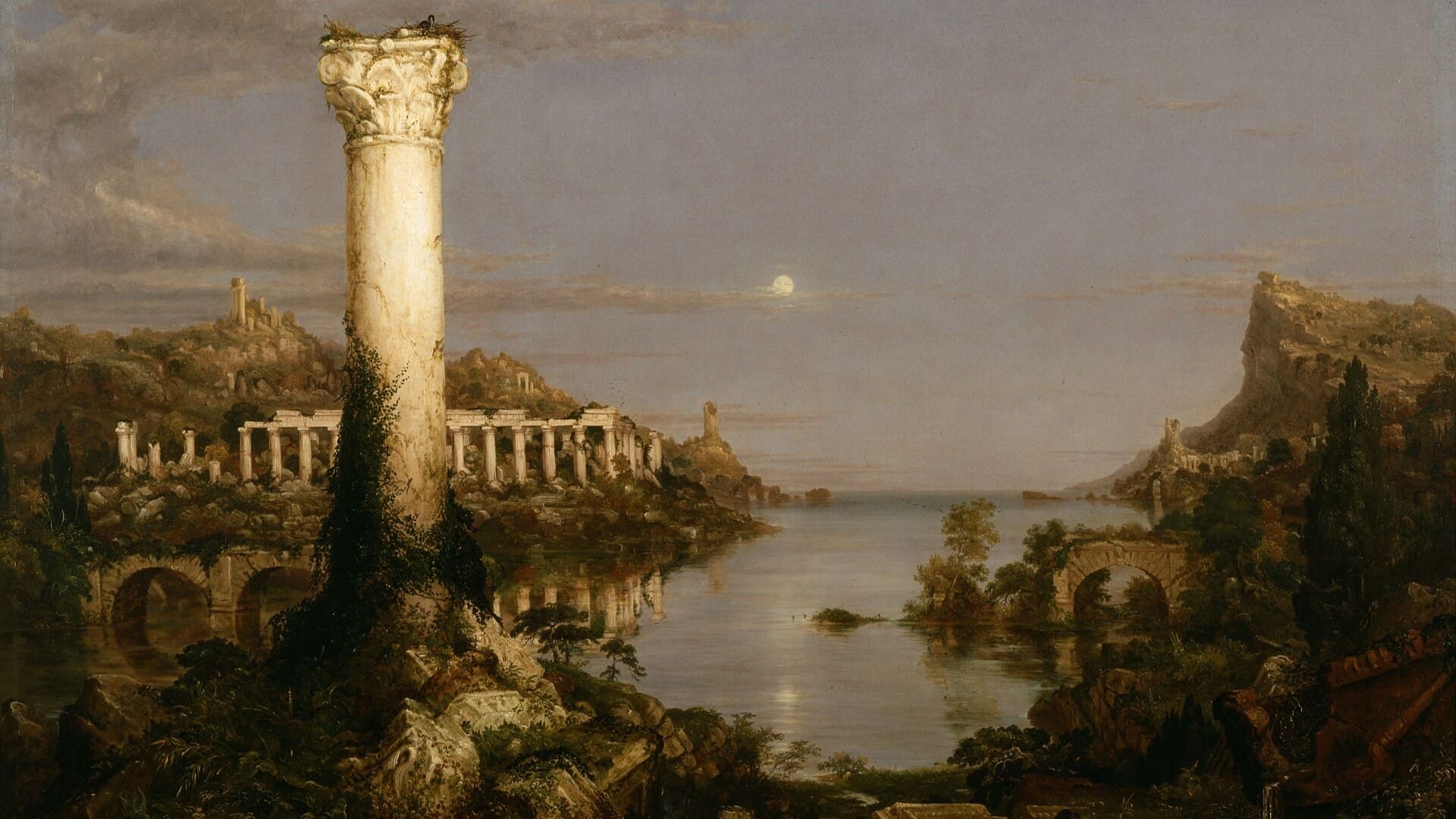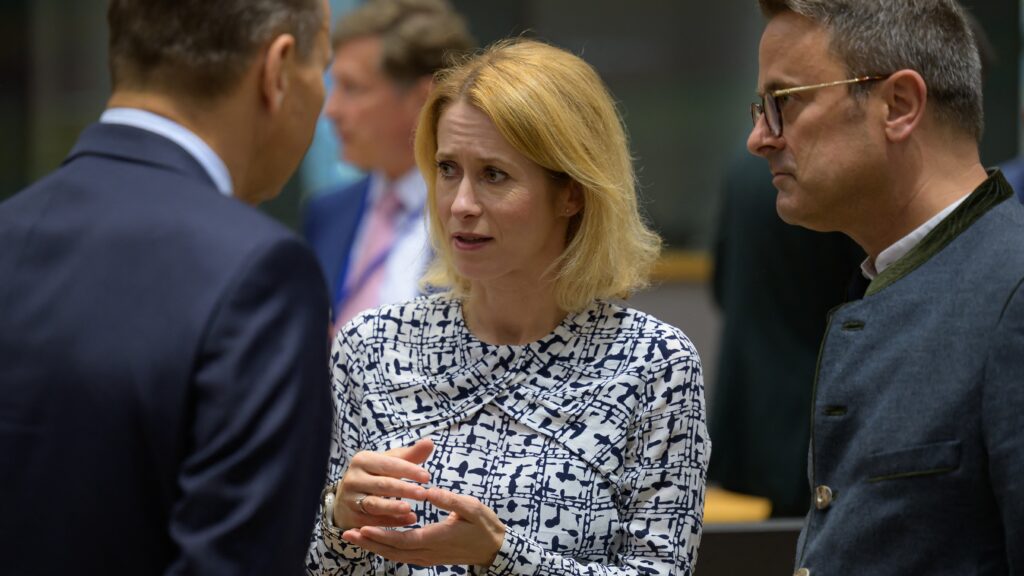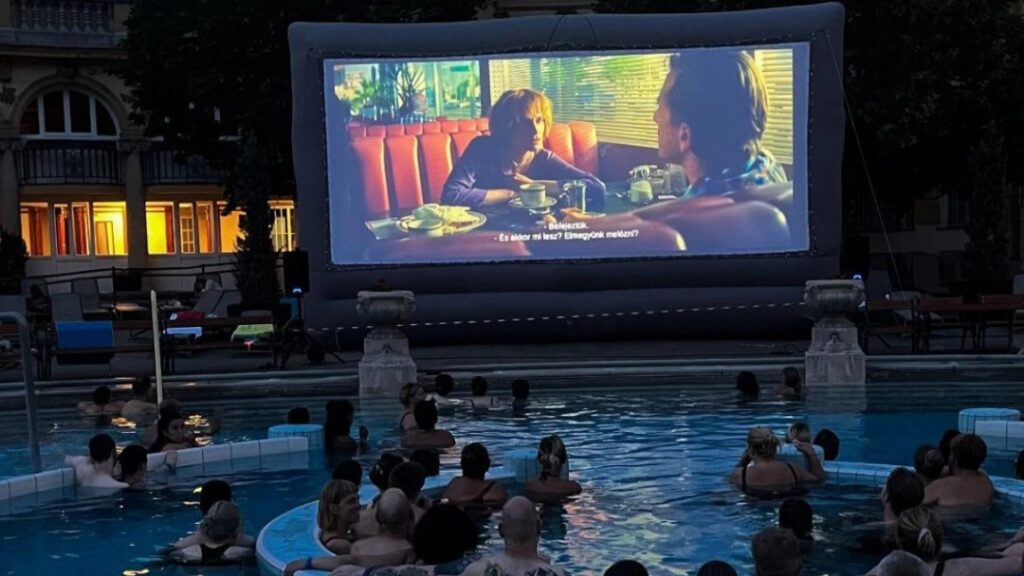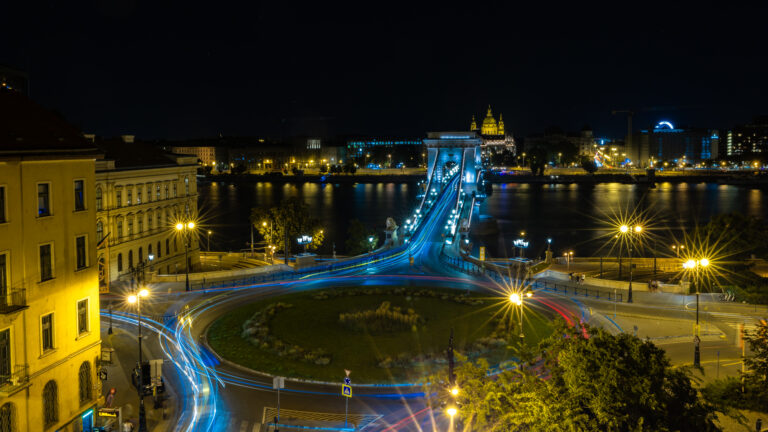One of the flash points of outrage in the ‘Tucker in Russia’ saga followed Carlson’s trip to a Moscow grocery store. Critics furiously proffered talking points–like Russians’ access to plumbing and a grocery trip’s toll on the average Russian income (in metro Moscow, a reported €22,000, or $23,808 annually; $15,270 nationally)–in response to Tucker’s supposed adulation of Muscovite living. It all dripped, of course, with the self-righteous zeal that precisely explains why Carlson’s recent interview with Vladimir Putin garnered over 208 million views on X and tens of millions more on YouTube.
Surely Tucker’s most important conclusions have little to do with Russia. Carlson isn’t longing for an expatriate lifestyle. He often notes his belief that the United States is the greatest country on earth and presents his journalistic endeavors in service to that idea. Here he is seemingly sincere and demonstrably consistent.
While filming his since-canceled primetime Fox News show in Budapest (metro per capita income €24,200, or $26,165) in 2021, Carlson noted the societal orderliness. ‘Other countries–far less privileged places–have figured this out,’ he asserted. ‘Notice…what you don’t see. There are not tent cities of drug addicts living in the parks here. There isn’t garbage and human waste littering the sidewalks…That’s how Americans used to live.’
Interestingly, this subject made the rounds in European political circles shortly before Carlson’s Moscow visit. Last month, Dutch journalist Caroline de Gruyter wrote an EU Observer column in which she disingenuously argued ‘[Prime Minister Viktor] Orbán’s Budapest is decaying, literally and metaphorically.’ She asserted: ‘Many buildings are dirty. The streets have potholes. The woodwork of the main station, Keleti, is literally crumbling.’
Hungarian British historian Victor Sebestyen, author of the 2022 study Budapest: Between East and West, more charitably surveyed the same cityscape and opined,
‘Budapest has grandeur, if faded around the edges, beauty in a gritty, lived-in sort of way.’
Carlson’s conclusions are more representative of reality than de Gruyter’s, though the news anchor’s evidence could be more precise. He likely didn’t venture far beyond the central tourist district of Pest, where British stag parties offer the only threat to a shiny façade.
While Budapesters aren’t wealthy, their lives are safe, purposeful, and filled with objective beauty. They perceive that they are temporary stewards of a valuable human condition and assume their descendants ought to inherit it; society is to be preserved, rather than consumed. Mothers with infants and other young children are an unmistakable element of the Hungarian capital. I always felt comfortable when my wife walked alone at night. Violent crime and discarded needles are nonexistent. This is life in the former Eastern Bloc.
Contrast this with the de facto European capital, Brussels (metro per capita income €53,200, or $57,526), where demographic shifts are palpable.
‘In Brussels, more than in any other European capital, you felt on the edge of civil war,’
writes Michel Houellebecq.
The area around the Zuid/Midi train station evokes the third world (today’s preferred term ‘developing world’ doesn’t capture it). The stench of urine permeates the air, and young men of non-European origin loiter in front of the station and consume drugs or glare at passersby. A Politico report noted ‘theft, extortion and drug-related offenses’ and over 3,400 annual crimes at the station in recent years. ‘This is the first thing many foreigners see of our country, and it is not a pretty picture,’ said one Belgian MP. No such scene exists beyond the former Iron Curtain, excepting the former East Germany.
In de Gruyter’s native Netherlands, Somali immigrant and former parliamentarian Ayaan Hirsi Ali offers a look beneath the veneer of GDP figures. ‘As a Somali arriving in the Netherlands in 1992, I was shocked to see young women alone on public transport and in bars and restaurants,’ she noted. ‘[D]ecades later, that can no longer be said with the same confidence. A growing number of European women are questioning their safety.’ Furthermore, ‘European women…are facing increased rates of sexual violence and harassment on public transit and are adopting coping mechanisms similar to those used by women in Africa and the Middle East.’
Immigration and cultural collisions are central to these developments in Western Europe, but they explain just a part of the West’s Gibbonian trajectory. Issues like drug abuse, homelessness, and criminal justice are critical elements as well, and they are arguably more central to the state of modern American society.
In San Francisco (metro per capita income $123,736, or €114,383), seat of a region with unprecedented wealth accumulation, the pedestrian confronts hypodermic needles and human feces. Cleaning up before Chinese General Secretary Xi Jinping’s November visit, authorities tacitly acknowledged these conditions are neither acceptable nor inevitable.
This is a notoriously extreme manifestation of American decline, but, in this regard, most American cities more closely resemble San Francisco than Budapest—or, if Carlson is to be believed, Moscow.
In his memoir Hillbilly Elegy, Sen. J.D. Vance describes a return to his hometown of Middletown, OH (county per capita income $55,897, or €51,672), during adulthood: ‘It was past midnight. The streetlight revealed the silhouette of a man sitting halfway in his truck—the door open, his feet dangling to the side—with the unmistakable form of a hypodermic needle sticking from his arm. I should have been shocked, but this was Middletown, after all.’ One can replace ‘Middletown’ with countless other American locales and appreciate the same sentiment.
In my beloved hometown of Greensboro, NC (metro per capita income $52,335, or €48,379), a downtown railroad track demarcated the border between safety and danger, order and lawlessness. (Recent gentrification has moved the physical border but preserved its dichotomy.) A coworker new to town once told me he chose an apartment on the wrong side of the tracks; within days, he had shipped his electronics home to family.
Pittsburgh (metro per capita income $65,792, or €60,819), my adopted home, is broadly on the socioeconomic upswing but is no exception to systemic decline. Recently, while driving downtown on a cold winter night, I noticed the scourge of opioid addiction on street corners and at bus stops: figures in a trance-like state, shaking from the drugs and the cold, peering into oblivion. On my latest visit, while driving a Slovak visitor, two men shrieked wildly as they launched into physical combat. My visitor was astonished. ‘They’re probably on drugs,’ I stammered. More profound sentiments deserted me, but I wanted to express how I sincerely hope his country will avoid that fate.
Tucker Carlson, whether he presented his case from Moscow effectively, believes America shouldn’t accept it either. His Russia visit was notable not for its interview content, but for its reminder that
society need not be wealthy to exhibit the basic characteristics of civilization we once took for granted.
Perhaps Carlson most commendably made this case during his 2021 trip to Hungary. While visiting a border station along the frontier with Serbia, he noted how a guard expressed alarm, as if he had stumbled upon a snake, and stooped to collect a plastic wrapper from the ground. In this obscure corner of the country, unknown even to most Hungarians, Carlson illustrated why we need more, not less, of his brand of journalism.








